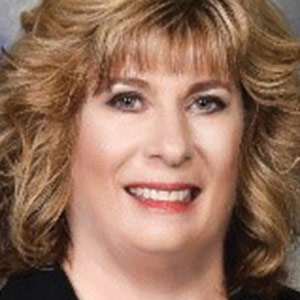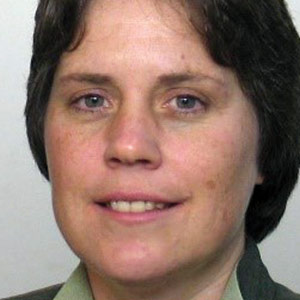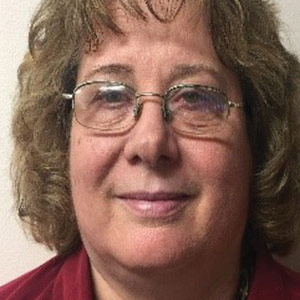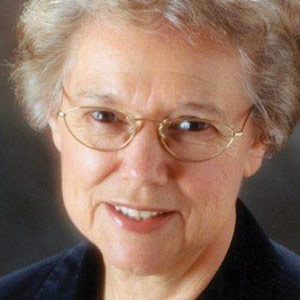Globally, there is increased demand for graduate nursing education. In this interview, Dr. Patricia S. Jones sits down with three administrators of graduate nursing programs to discuss the demand for advanced programs, the need for qualified educators, types of certifications, and opportunities for online graduate education.
Dr. Jones: The first question I have for each of you is in regard to the current demand for graduate education in nursing. How would you describe that demand?
Dr. Lloyd: In our graduate department at Loma Linda University (Loma Linda, California, U.S.A.), we are seeing a demand for Advanced Practice Registered Nurse programs (APRN). Most students are interested in DNP (Doctor of Nursing Practice) roles. Many of these students are nurses from the workforce who are eager to get their doctorate to validate and give credibility to what they have been doing in practice for a number of years and to provide additional career opportunities.
Dr. Gadd: There is certainly a lot of demand here on the East Coast where I live as well. We know there is a national demand for nurse practitioners based on the research and epidemiologic information about the aging of America, the increased demand for health care, and the inadequacy of the medical system to meet that demand. We also experience a loss of nurses in an aging workforce. So there are many opportunities for advanced-practice nurses. As was mentioned previously, many nurses who are mature in their nursing role are anxious to move forward professionally to provide primary-care services in different settings from what they have been used to. We see health care moving into the community more, so advanced practice nurses have the opportunity to meet some of those needs. The demand is there, and a lot of people are signing up to go to school.
Dr. Bristol: The other thing I would mention is that within hospital settings the cost of care―with an increased focus on quality―and changes in how health-care institutions are paid are big issues. It is important to have advanced-practice nurses in the health-care system who are able to achieve or maintain accreditation and professional criteria, such as the American Nurses Credentialing Center’s (ANCC) magnet status, direct the kind of programs needed to demonstrate quality patient outcomes, and to take the lead in working within the organization to accomplish these goals. In today’s environment, even the viability of the organization is at stake because reimbursement for care is based on patient outcomes.
Dr. Gadd: I think it is super important to have these quality health-care providers because research has shown for 15 or 20 years that the survival rates of hospitalized patients are better when the nurses have higher levels of education. This occurs at the undergraduate level when you compare associate degree- to bachelor’s-level prepared nurses. The outcomes are better for patients cared for by a nurse with a bachelor’s degree. This is also true of higher levels of care from nurses with Master’s and doctoral degrees, and in various settings. When you look at the acute-care settings, graduate-level nursing education is very important and really makes a difference.
Dr. Jones: Yes, that is very clear from the remarks you have made thus far. What would you say about the increasing need for qualified educators?
Dr. Gadd: Here at Southern Adventist University (Collegedale, Tennessee, U.S.A.), we do have a nursing-education track in our program; but unfortunately, it has a very low enrollment.
Dr. Lloyd: The challenge at Loma Linda University (LLU), and across the nation, is that many nursing educators will be retiring within the next 10 years. We are working to “grow our own” faculty now so that they will be ready to carry on the work.
Dr. Bristol: In keeping with what I mentioned above, many graduates from our Master’s and doctoral programs are choosing to be employed in clinical areas due to financial and other incentives. Educational institutions also need to recruit some of these highly qualified individuals to maintain the level of education that produces qualified practitioners. We need competent faculty at all levels of nursing education, from the undergraduate level all the way through doctoral programs. As educators, we currently allow APRN faculty time out from their academic workload to maintain practice skills. This collaboration between service and education will continuously improve lines of communication and enhance the educational opportunities for both students and nurses.
Dr. Lloyd: Many of our students who enter the Master’s level Nurse Educator concentration later change to the Clinical Nurse Specialist (CNS) concentration due to the large education component in the CNS role. Also, CNS students are able to receive advanced-practice state and national certification, thus expanding their role as well as providing increased clinical and educational opportunities. Either concentration can lead to a faculty role.
Dr. Jones: Yes.
Dr. Gadd: It is very well documented that there is a shortage of nursing faculty. Many nursing institutions take significant time to find qualified faculty and have a number of unfilled faculty positions. It is a problem that affects the whole nursing practice area because fewer educators means you take in fewer students and have fewer graduates. We need doctorally prepared faculty to prepare nurse educators to teach, and there are insufficient numbers of those faculty. As you mentioned, retirements plus other factors like discrepancies in wages and salaries are very challenging. Nurses who finish an associate degree can often earn as much as I do with a PhD. But I’ve never gone hungry, and there is a special blessing in doing what God calls us to do—particularly teaching in the Adventist system. So, when I talk with nurses who are considering preparing for a faculty role, I emphasize mission and what we do with the talents God has given us. There are rewards other than money.
Dr. Bristol: Not all students completing an APRN program have the knowledge and skills to immediately become a competent educator. It is, in fact, an entirely new learning curve. Early identification of a student’s interest in an academic career can lead to a strong mentorship and supportive relationship for developing competent faculty.
Dr. Gadd: I totally agree with that. I was educated at Loma Linda as a nurse educator. I really valued courses related to curriculum development, classroom and clinical instruction modalities, testing, measurement, and evaluation—how to do these things correctly. There is a science to what we do as educators.
Dr. Lloyd: It’s not just “if you can do it, you can teach it.” We have found that’s not always the case.
Dr. Gadd: That’s exactly right. I’ll use an even broader example. My husband began teaching accounting after being an accountant and auditor for years. He has expressed many times his envy of the classes I had in my graduate program because I learned how to teach and wasn’t having to try to figure it out on my own. Teaching is not necessarily a natural thing, so it is really important that we have these graduate nurse-educator programs.
Dr. Jones: Thank you. Is there anything you would like to add regarding opportunities for graduates with an advanced-practice education?
Dr. Bristol: The nationally recognized programs for advanced practice include the Clinical Nurse Specialist (CNS), Nurse Practitioner (NP), Nurse Anesthetist (CRNA), and Nurse Midwife (NM). At LLU, we have the CNS concentration, which includes Adult-Gerontology or Pediatric specialties. Within the Nurse Practitioner concentration, we have the following specialties: Family Nurse Practitioner, Adult/Gerontology Nurse Practitioner, Psychiatric Nurse Practitioner, and Pediatric Nurse Practitioner. We also offer the Nurse Anesthetist concentration. The Neonatal Nurse Practitioner and the Nurse Midwife, although not offered at LLU, are available nationwide.
Dr. Jones: There is also acute care, right?
Dr. Lloyd: Yes, a few schools nationally offer the Acute Care Nurse Practitioner (ACNP) specialty as well.
Dr. Gadd: Those are the four major advanced-practice roles noted in the national guidelines. Within those roles, the nurse practitioner―and to some degree the CNS―then divide into acute- and primary-care roles, and then further into lifespan (e.g., neonatal, pediatric, adult, geriatric), gender (e.g., women’s health), and other specialty areas (e.g., cardiology, dermatology, and orthopedics).
Dr. Bristol: APRN graduates are highly encouraged to seek both state and national certification for all of those areas. In fact, APRN graduates are considered to have a generalist degree. The expectation is for further specialization within one’s initial specialty practice, particularly for CNSes. This trend will probably continue.
Dr. Gadd: There are advantages and disadvantages to specialization. One of the things that nurse practitioners have done exceptionally well is to begin filling holes in the medical system as physicians have specialized. Physicians are filling less of the general and family-practice roles. Nurse practitioners are filling many of those primary-care roles and meeting a very important national health-care need. It may not be advantageous for nurse practitioners to push to become specialized, as that may again leave gaps in primary-care services.
Dr. Lloyd: Nationally, the FNP role is in the greatest demand by students at this time. At LLU, the FNP and CRNA concentrations are the largest areas in our graduate program.
Dr. Gadd: We see that in our program demographics at Southern as well. I would say about 90 percent of our graduate students are enrolled in the FNP emphasis. The next biggest demand is for the acute-care nurse practitioner emphasis, which is adult/gerontology. Many students like this area, as they have worked in critical-care and high-acuity inpatient settings and feel most comfortable there. The acute-care nurse practitioner role is growing across the country. Psychiatric-mental-health nurse practitioner is another big demand area with many job openings across the nation. This is a very specialized focus and attracts students with experience in this area who are interested in an expanded role in the care of patients with mental-health problems.
Dr. Jones: So do you also have a Psychiatric-Mental Health Nurse Practitioner (PMHNP) program?
Dr. Gadd: Yes, Southern’s graduate programs include the PMHNP track. This was added a couple years ago, and we just graduated our first students. There are tremendous gaps in mental-health care across the U.S., in Tennessee, and in our local community. There are no other programs in our immediate area to address those needs. So far, we have had steady interest and enrollment in this emphasis, which is good.
Dr. Jones: When it comes to the level of education for these advanced-practice roles, is it at the Master’s-degree level or are they rapidly expecting DNP-level preparation?
Dr. Gadd: I think we are all aware that there was a big push to have the doctorate to be the entry level into advanced nursing practice by 2015. That date has come and gone, but the goal remains and is important. It is a complicated thing, however, because you have to be able to get the certifying agencies, the state licensing agencies, and the colleges and universities on the same page. It’s a mammoth endeavor.
Dr. Lloyd: Nationally, major nursing organizations are working toward standardization of advanced practice between the states through a national initiative.
Dr. Bristol: The DNP is becoming a well-accepted degree. We have seen a rise in the number of DNP programs nationally throughout the past several years. It remains to be seen just when that absolute deadline for DNP entry into practice will occur.
Dr. Gadd: As I’ve attended meetings, it doesn’t seem that anyone wants to set a date right now for the DNP to be the entry level for advanced practice.
Dr. Lloyd: No, we haven’t seen that either.
Dr. Bristol: Anecdotally, students entering the program from a variety of backgrounds are recognizing the need to reach the doctorate level to achieve their long-term goals. Although there is still a demand for the Master’s degree, many more are seeking the DNP.
Dr. Lloyd: Our Master’s program is focused on the Nurse Educator or Nurse Administration concentrations. The DNP and PhD programs are structured to admit post-baccalaureate and post-Master’s students. For information regarding entrance requirements for various graduate specialties, consult the school Website.
Dr. Jones: So, is it the Board of Registered Nursing (BRN) in each state or the professional associations that grant the certification?
Dr. Lloyd: Depending upon the state, it may be the BRN or the professional association. Students are encouraged to obtain both certifications if applicable.
Dr. Bristol: It’s a competitive advantage to have national certification. In fact, our most recent accreditation visitors wanted to ensure that faculty in charge of all the clinical courses were nationally certified as well as having doctoral degrees.
Dr. Lloyd: Our graduate program consists of Master’s and doctoral degrees.
Dr. Gadd: That is correct for entering into practice. We, too, have kept the Master’s program at Southern because a DNP is not required for advanced-practice certification or licensure. The MSN is a shorter program, and for many nurses that has a lot of appeal. It is a good option for those who don’t yet have a vision for a terminal degree.
Dr. Jones: Is national certification done by specific organizations?
Dr. Gadd: There are several certifying bodies. The national certification for Family Nurse Practitioners (FNPes) can be from the American Association of Nurse Practitioners or the American Nurses Credentialing Center. There are others for other specialties.
Dr. Bristol: The various concentrations are linked to their professional organizations, which in turn are linked to a national accrediting agency. For us, it is the Commission on Collegiate Nursing Education (CCNE), the accreditation arm of the American Association of Colleges of Nursing (AACN).
Dr. Gadd: Nurse Educators also have a certification exam.
Dr. Bristol: Yes, Nurse Educators may be certified through the National League of Nursing (NLN).
Dr. Jones: Maybe we should talk about the differences in the DNP and PhD educations.
Dr. Gadd: When we started this conversation, we were talking about the demand for advanced-practice nurses. A lot of nurses who come into our graduate programs are very practice oriented, wanting to work directly with patients. That is where the DNP originated—as a practice degree. DNP programs are generally shorter than PhD programs and have a very different focus. Research is included in the DNP program because a good clinician needs to interpret and demonstrate evidence of meeting various practice guidelines. The PhD program is much more focused on research. In our area, the demand for DNP education is greater because more nurses are oriented to clinical-practice settings than to research.
Dr. Lloyd: Yes, and the PhD degree in nursing, which currently is being overlooked somewhat, is essential to the education of our nurses. The development and implementation of original research to contribute to nursing knowledge is necessary to provide evidence for DNP graduates to translate into Evidence-based Practice (EBP) at the bedside for improved outcomes.
Dr. Bristol: That’s why it’s so important to have collaboration between the PhD and DNP roles. There is a discrepancy between the knowledge that exists and what is needed for expert clinicians in the implementation of EBP to improve quality patient outcomes. It is important for both roles to work seamlessly in this process.
Dr. Lloyd: At this time, it is more difficult for us to recruit students into the PhD program.
They are not sure what they are going to do; it is more expensive, it takes longer, and it is also more challenging. Traditionally, it has not been online or hybrid, although there were a few such programs. We started a BS to PhD program at LLU in the fall term of 2017 to see if a hybrid or online format can raise the level of competitiveness in terms of drawing students into both programs and keeping them going. We are working hard on that; it’s a hard go, but we are getting there. We are hoping to start off with a few students and build as we go along.
Dr. Gadd: We struggle with the same things. We have talked about our struggle to enroll nurse educators. We haven’t yet talked about advanced-practice roles in nursing administration. There is also a dearth of Master’s and doctorally educated Adventist nurses to fill leadership roles in the Adventist health-care systems. Many people go into nursing to work directly with patients and don’t desire to step away into either educator or administrator roles. The education needed to effectively accomplish those roles is just not part of their vision. We have many conversations about this at Southern. How do we attract students into these roles early in their career? How do we recognize their leadership traits and direct or encourage them toward leadership and administration?
Dr. Bristol: Hospital administrators have seen the need for their nurse leaders to obtain advanced nursing education. Clinical nurse leaders are required to have a minimum of a Master’s degree in nursing administration.
Dr. Gadd: We have similar requirements from health-care facilities around Southern. Several of the chief nursing officers have graduated from our MSN-MBA program. They were forced to seek graduate education. For those employed at magnet hospitals, the doctorate is additionally appealing. We are making that available, and including residence time in management and leadership which we hope will build strong leaders. As part of the advanced-practice roles, there are needs in these leadership areas and certainly huge needs in our Adventist health-care systems.
Dr. Jones: Are graduate programs promoting the administration track?
Dr. Lloyd: We have a Master’s-level administration concentration at LLU. Many nurses working in our hospital are required to have the Master’s degree for practice or for the manager’s role. We have also developed a Master’s externship program in collaboration with the medical center to allow students to take their DNP while they are also practicing in a clinical-leadership role.
Dr. Gadd: It’s hard to be everything to everybody. We have an MBA program at Southern. So what we have done is team up with the School of Business to create a dual-degree MSN-MBA. As we have been developing our DNP programs, we have added it as an emphasis in the DNP program as well (DNP-MBA). Now we just need to get more students enrolled.
Dr. Jones: That should help in terms of meeting the need for qualified administrators. Thank you very much. We have covered almost all of our topics, but let’s touch on the final one: What about offering graduate education online?
Dr. Lloyd: When we surveyed students in the process of doing a needs assessment for the different programs, the overwhelming response was an interest and request for some type of online learning. We are using the hybrid method for our online programs.
Dr. Jones: Can you describe the hybrid method of online education?
Dr. Lloyd: Hybrid programs feature primarily online learning with once-per-quarter on-campus face-to-face interaction with the instructor. The length of time the students are on campus is determined by the number of classes they are taking. We work to make it convenient and user friendly for the students.
Dr. Bristol: Some courses may require more personal contact with students. Courses such as health assessment, statistics, or clinical courses may require extra sessions either face to face or by a computer Zoom session (online video-conferencing session), as decided by course faculty.
Dr. Gadd: We provide online education to meet the needs of people who do not have good access to graduate education or who prefer online learning for convenience. Online education is not for everybody. There are some individuals who just don’t possess the right personality, study skills, technical skills, support, or whatever it takes to do online education. There are challenges on the student’s end that need to be weighed when the student is trying to choose a program. There are also huge challenges for an institution offering quality online education. You can’t just take a class you teach face to face and turn it into an online class with the flip of a switch. It takes much more time and effort, and a lot of preparation. There are best-practice guidelines for high-quality online education. Some of our faculty prefer not to teach online because it requires a lot of daily attention and is different from the classroom—sometimes difficult and challenging.
Dr. Lloyd: It takes an immense amount of work and infrastructure support to do it well. There is a huge demand for using educational technology, which will probably only increase. It just requires those of us who started teaching a long time ago to really step up to using the technology piece.
Dr. Jones: How do you think online delivery is going to affect our ability to educate faculty for sister schools in other countries, since we are a global system?
Dr. Gadd: Online education is really an advantage in relation to educating those from other countries if they have the capability and technology to be a part of a class. Time-zone differences make asynchronous delivery modes ideal. Education where they can learn at their own best time of day is really helpful. Individuals in other countries can take advantage of a wealth of educational resources.
Dr. Jones: Do you have some international students in your programs?
Dr. Gadd: One of our recent DNP graduates was an American nurse educator living and doing her program in Korea.
Dr. Bristol: Applicants must have their RN license in the United States to enter and complete the DNP program. That may be a hindrance to international students.
Dr. Lloyd: There is also a visa issue. All international students must first be vetted according to their type of visa and whether their country will recognize an online degree prior to acceptance into the program. LLU requires all student visas to be processed through the campus international student office, and difficulties arise for some students who want to register for online programs.
Dr. Gadd: There are definitely a lot of challenges with student visas and other immigration laws. However, distance-education programs, if totally online, circumvent most of these issues and provide an advantage.
Dr. Jones: Is there anything that was not touched on that you would like to share?
Dr. Gadd: I would just like to say that there are a lot of exciting opportunities for students and faculty in graduate education. I often say I have the best job on campus here at Southern. I work with mature students who are highly motivated and really want to achieve professionally, and who have so many opportunities, given our current health-care climate. There are many challenges involved in what we do in the graduate area as professors—to keep up with clinical practice, teaching and educational modalities, and to engage in and promote scholarly activities. We need to continue to develop and promote cutting-edge programs that meet the needs of nursing practice, nursing education, and administration for our local and church constituents as well as for those in our global society. It is both personally and professionally rewarding.
Dr. Bristol: As students enter their undergraduate program, faculty may assist them in their career planning to identify potential mission opportunities and those who might be interested in becoming nursing faculty or administrators.
Dr. Lloyd: Advanced-practiced nurses have great potential to make a difference within their sphere of influence. An advanced-practice education résumé tops any employer’s stack of applications. Our purpose is to train students to take the Seventh-day Adventist message to their communities and the world.
Dr. Jones: Thank you so much.
Recommended citation:
Susan L. Lloyd et al., “Adventist Graduate Nursing Education: An Interview,” The Journal of Adventist Education 79:5 (October-December 2017): 43-48. Available at https://www.journalofadventisteducation.org/en/2017.5.8.







